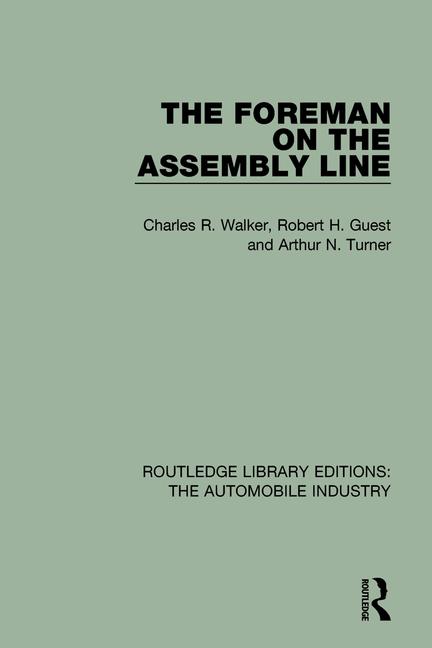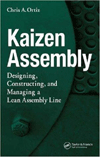Assembly In Action: Spot Welder Expands Foil-Layering Capability on Capacitors
Cornell Dubilier is a leading manufacturer of capacitors for the power electronics market. For the past several years, the company has used ultrasonic spot welders to weld multiple layers of foil to capacitor posts.
 Founded in 1909, Cornell Dubilier is a leading manufacturer of capacitors for the power electronics market. The company serves more than 35,000 customers with its many types of multiple capacitor dielectric systems, which are used in both established and emerging markets-the latter including renewable energy, solar and wind power, fuel cell inverter applications and DC link capacitors for electric vehicles.
Founded in 1909, Cornell Dubilier is a leading manufacturer of capacitors for the power electronics market. The company serves more than 35,000 customers with its many types of multiple capacitor dielectric systems, which are used in both established and emerging markets-the latter including renewable energy, solar and wind power, fuel cell inverter applications and DC link capacitors for electric vehicles.
For the past several years, Cornell Dubilier has used ultrasonic spot welders from Sonobond Ultrasonics to weld multiple layers of foil to capacitor posts. Scott Day, electronic technician at Cornell Dubilier, says the spot welders help the company quickly produce capacitors that meet the company’s high standards of dependability.
Cornell Dubilier recently installed a SonoWeld 1600 spot welder at its manufacturing facility in Liberty, SC, because the machine performs spot welds in a single pulse and with repeatable accuracy. SonoWeld 1600 is capable of welding up to eight layers of foil to capacitor posts, but Cornell Dubilier currently uses the machine to weld a maximum of four layers. With special tooling, the SonoWeld 1600 can also perform wire-to-terminal welding.
Several features on the SonoWeld 1600 really impress Cornell Dubilier. The first is the unit’s microprocessor, which can store and recall up to 250 weld protocols from memory. Weld parameters can be set up by time, total energy or final weld thickness. The unit has an RS232 port to transfer weld data to a computer.
Automatic control monitoring detects when variables exceed preset power and time limits. It also senses if a part height is different from that originally set, as well as wrong-part or no-part welding.
Another key feature is the patented Wedge-Reed bonding system, which combines high vibratory force with low amplitude coupling to create very dependable welds. This system uses shear mode vibration that is parallel to the welding surface, thereby eliminating bending stress. As a result, nonferrous similar or dissimilar metal assemblies-including copper to aluminum-can be welded.
The SonoWeld 1600 also has a feedback loop feature for quality control. This feature tells Cornell Dubilier how much power was used to make a weld.
For more information about ultrasonic welding equipment, call 800-323-1269 or visit www.sonobondultrasonics.com.

Cornell Dubilier uses the SonoWeld 1600 ultrasonic spot welder to attach multiple layers of foil to capacitor posts. The welder can weld up to eight layers of foil with a single pulse. Photo courtesy Sonobond Ultrasonics
For the past several years, Cornell Dubilier has used ultrasonic spot welders from Sonobond Ultrasonics to weld multiple layers of foil to capacitor posts. Scott Day, electronic technician at Cornell Dubilier, says the spot welders help the company quickly produce capacitors that meet the company’s high standards of dependability.
Cornell Dubilier recently installed a SonoWeld 1600 spot welder at its manufacturing facility in Liberty, SC, because the machine performs spot welds in a single pulse and with repeatable accuracy. SonoWeld 1600 is capable of welding up to eight layers of foil to capacitor posts, but Cornell Dubilier currently uses the machine to weld a maximum of four layers. With special tooling, the SonoWeld 1600 can also perform wire-to-terminal welding.
Several features on the SonoWeld 1600 really impress Cornell Dubilier. The first is the unit’s microprocessor, which can store and recall up to 250 weld protocols from memory. Weld parameters can be set up by time, total energy or final weld thickness. The unit has an RS232 port to transfer weld data to a computer.
Automatic control monitoring detects when variables exceed preset power and time limits. It also senses if a part height is different from that originally set, as well as wrong-part or no-part welding.
Another key feature is the patented Wedge-Reed bonding system, which combines high vibratory force with low amplitude coupling to create very dependable welds. This system uses shear mode vibration that is parallel to the welding surface, thereby eliminating bending stress. As a result, nonferrous similar or dissimilar metal assemblies-including copper to aluminum-can be welded.
The SonoWeld 1600 also has a feedback loop feature for quality control. This feature tells Cornell Dubilier how much power was used to make a weld.
For more information about ultrasonic welding equipment, call 800-323-1269 or visit www.sonobondultrasonics.com.
Looking for a reprint of this article?
From high-res PDFs to custom plaques, order your copy today!







